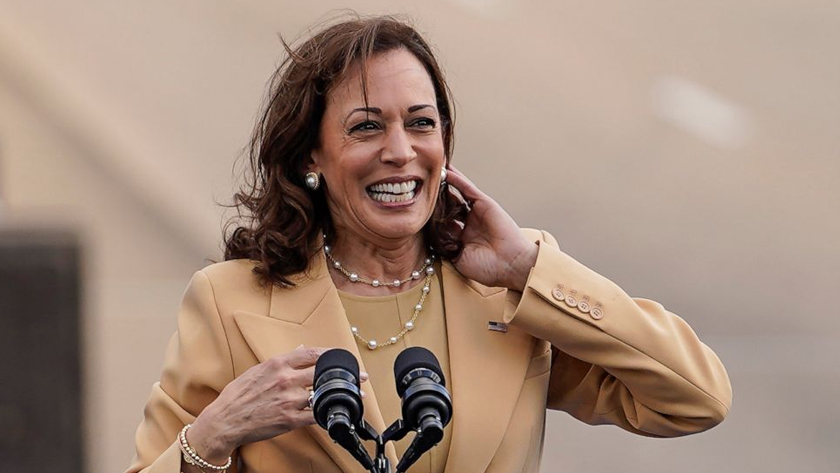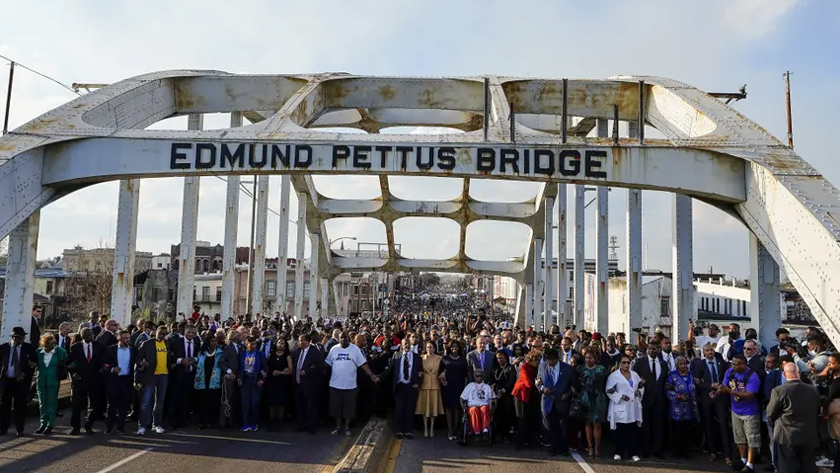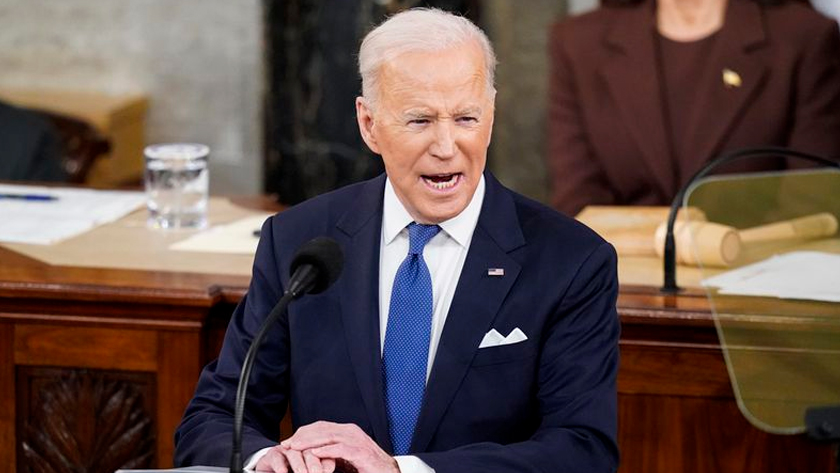Iran Press/ America: Kamala Harris took the stage at the foot of the bridge where in 1965 white state troopers attacked Black voting rights marchers attempting to cross, The Guardian reported.
Harris called the site hallowed ground on which people fought for the “most fundamental right of America citizenship: the right to vote”.
“Today, we stand on this bridge at a different time,” Harris said before a cheering crowd of several thousand.
“We again, however, find ourselves caught in between. Between injustice and justice. Between disappointment and determination … nowhere is that more clear than when it comes to the ongoing fight to secure the freedom to vote.”

The nation’s first female vice president – as well as the first African American and Indian American in the role – spoke of marchers whose "peaceful protest was met with crushing violence."
On “Bloody Sunday”, 7 March 1965, state troopers severely beat and tear-gassed peaceful demonstrators, including a young activist, the late John Lewis, who later became a longtime Georgia congressman.
The images of violence at the Edmund Pettus Bridge – originally named for a Confederate general – shocked the nation and helped galvanize support for passage of the Voting Rights Act.
Fifty-seven years later, Democrats are unsuccessfully trying to update the landmark law and pass additional measures to make it more convenient for people to vote. A key provision of the law was tossed out by a US supreme court decision.
“In a moment of great uncertainty, those marches pressed forward and they crossed,“ Harris said. “We must do the same. We must lock our arms and march forward. We will not let setbacks stop us. We know that honoring the legacy of those who marched then demands that we continue to push Congress to pass federal voting rights legislation.”
In Selma, a crowd gathered hours before Harris was scheduled to speak. Rank-and-file activists of the civil rights movement, including women who fled the beatings of Bloody Sunday, were seated near the stage.

The milestone of Harris becoming the nation’s first Black female vice president seemed unimaginable in 1965, they said.
“That’s why we marched,” Betty Boynton, the daughter-in-law of voting rights activist Amelia Boynton, said.
“I was at the tail end and all of the sudden I saw these horses. Oh my goodness, and all of the sudden … I saw smoke. I didn’t know what tear gas was. There were beating people,” Boynton said.
But Boynton said Sunday’s anniversary is tempered by fears of the impact of new voting restrictions being enacted.
“And now they are trying to take our voting rights from us. I wouldn’t think in 2022 we would have to do all over again what we did in 1965,” Boynton said.

The US president, Joe Biden, said the strength of the groundbreaking 1965 Voting Rights Act “has been weakened not by brute force, but by insidious court decisions”.
The latest legislation, named for Lewis, who died in 2020, is part of a broader elections package that collapsed in the US Senate in February.
“In Selma, the blood of John Lewis and so many other courageous Americans sanctified a noble struggle. We are determined to honor that legacy by passing legislation to protect the right to vote and uphold the integrity of our elections, including the John Lewis Voting Rights Advancement Act and the Freedom to Vote Act,” Biden said in a statement.
The US supreme court in 2013 gutted a portion of the 1965 law that required certain states with a history of discrimination in voting, mainly in the South, to get US Justice Department approval before changing the way they hold elections, with voting rights activists warning the action is emboldening states to pass a new wave of voting restrictions.
224
Read More:
Killings of black women in US receive little attention: The Guardian
US racism in numbers
Doemonstrators across US call on Congress to bolster voting rights
Maryam Abolbagha

